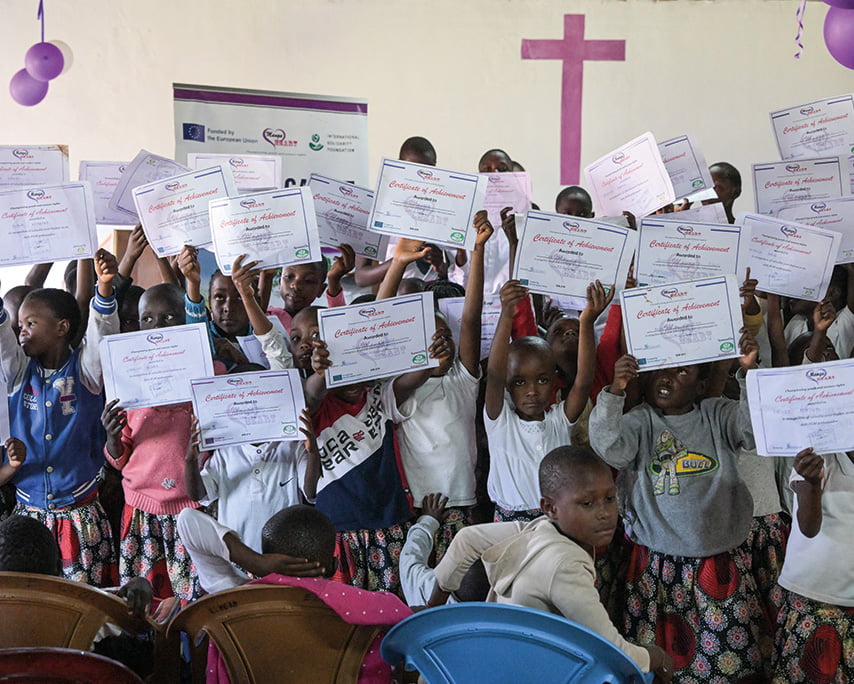Young girls hold their certificates upon completion of the alternative rite of passage ceremony organised by Manga HEART, a non-profit fighting gender-based violence and female genital mutilation (FGM) in Kisii, Kenya on 30th November 2023.
Photo credit: Simon Maina AFP via Getty Images
International Day of Zero Tolerance to Female Genital Mutilation
This International Day of Zero Tolerance to Female Genital Mutilation (FGM), the world unites in solidarity to amplify the voices of those who have suffered and to shed light on the urgent need to eradicate this harmful practice. This year’s theme, “Her Voice. Her Future.,” underscores women’s crucial role in steering their destinies and shaping a world free from the shackles of FGM.
Causes of FGM
Female Genital Mutilation is a deeply rooted cultural practice with complex sociocultural and historical origins. The primary causes are entrenched in gender inequality, patriarchal norms and cultural beliefs. FGM is often viewed as a rite of passage, a means to control a woman’s sexuality and a way to adhere to cultural norms. Misguided beliefs about hygiene, purity, and tradition contribute to the perpetuation of this harmful practice.
Effects of FGM
The consequences of FGM are severe as it affects the physical, emotional and psychological well-being of the victim. Immediate complications include severe pain, bleeding, infections, and sometimes even death. Long-term consequences encompass complications during childbirth, psychological trauma and sexual dysfunction. Beyond the physical toll, survivors of FGM endure lasting emotional scars, impacting their mental health and overall quality of life.
How society can help end FGM
Ending FGM requires a multifaceted approach involving governments, communities and individuals. Advocacy and awareness campaigns are crucial to dispel myths surrounding FGM and challenge ingrained cultural norms. Education, especially for girls, is pivotal in empowering communities to reject harmful practices. Additionally, legal frameworks must be strengthened to criminalise the practice and ensure the enforcement of laws protecting women and girls.
Violation of women’s rights
Female Genital Mutilation starkly violates several fundamental human rights, including the right to life, physical integrity and health. It is a form of gender-based violence and discrimination that deprives women and girls of their autonomy and bodily autonomy. The practice undermines their right to education, equality and freedom from torture and cruel, inhuman, or degrading treatment.
The eradication of FGM aligns with multiple Sustainable Development Goals (SDGs). SDG 3, which focuses on good health and well-being, underscores the importance of eliminating harmful practices like FGM. SDG 5, which aims to achieve gender equality, recognises the urgency to end violence and harmful practices against women and girls. Additionally, SDG 10 calls for reducing inequalities within and among countries, emphasising the need to challenge harmful cultural norms perpetuating discrimination.
On this International Day of Zero Tolerance for Female Genital Mutilation, we must renew our commitment to amplify the voices of survivors and championing the rights of women and girls. Through our collective action, education and advocacy, we can build a world where every woman’s voice is heard, her future is free from harm, and the practice of FGM becomes a thing of the past. Together, let us break the chains of harmful traditions and create a future where the rights and dignity of every woman are upheld.



